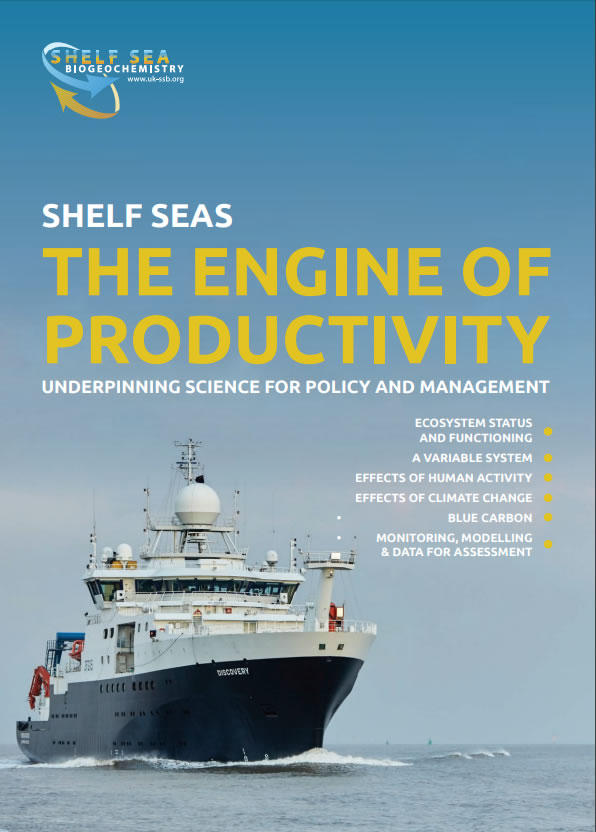Shelf Seas: the engine of productivity - underpinning science for policy and management
This report summarises key policy-relevant results arising from the NERC-Defra Shelf Sea Biogeochemistry Programme (SSB), 2013-2018. It focuses on current scientific understanding of the shelf seas around Britain: the key processes that maintain their status, variability and response to impacts (climate and human); their potential to remove and store carbon (‘blue carbon’); and the lessons for policy in monitoring, managing and valuing these precious habitats. These findings provide evidence for Defra, the devolved administrations and other stakeholders to help ensure the sustainable use of the UK marine environment. Download the full report as a pdf document - ![]() (4.58 MB).
(4.58 MB).
Results included a much-improved understanding of the role of shelf seas in removing and storing carbon (‘blue carbon’), and the lessons for policy in monitoring, managing and valuing these precious habitats. These findings provide evidence for Defra, the devolved administrations and other stakeholders to help ensure the sustainable use of the UK marine environment.
Key findings presented in the report include:
- The UK shelf seas take up large amounts of carbon dioxide, thereby slowing global warming; however, many knowledge gaps remain
- Climate change is already affecting UK shelf seas and impacts will intensify
- Many interacting factors control the amount and growth of the microscopic plants (phytoplankton) that underpin nearly all other life in the sea
- Surprisingly, a summer-time lack of iron may be one of the constraints on phytoplankton growth; this has not been found before in shelf seas
- The chemistry and biology of shelf seas is strongly affected by the highly variable conditions at the seafloor, affected by natural processes and human disturbance
- Marine protected areas provide unique opportunities for separating climate-driven changes from direct human actions; for example, trawling
- Most trawling impacts on seafloor life and processes seem to occur the first time an area is trawled; on that basis, it would seem better to have high fishing effort in some areas and none in others, rather than equally spreading the seafloor disturbance
- Novel technologies are increasingly being used to find out how shelf seas work, providing many direct and indirect benefits to society.
The UK Shelf Sea Biogeochemistry research programme was a £10.5 million study co-funded by the Natural Environment Research Council (NERC) and the Department for Environment, Food and Rural Affairs (Defra). The SSB Publications link to the 85 programme publications that provide the factual basis for this report.
Please cite as :
Kröger S, Parker R, Cripps G & Williamson P (Eds.) 2018. Shelf Seas: The Engine of Productivity, Policy Report on NERC-Defra Shelf Sea Biogeochemistry programme. Cefas, Lowestoft.
